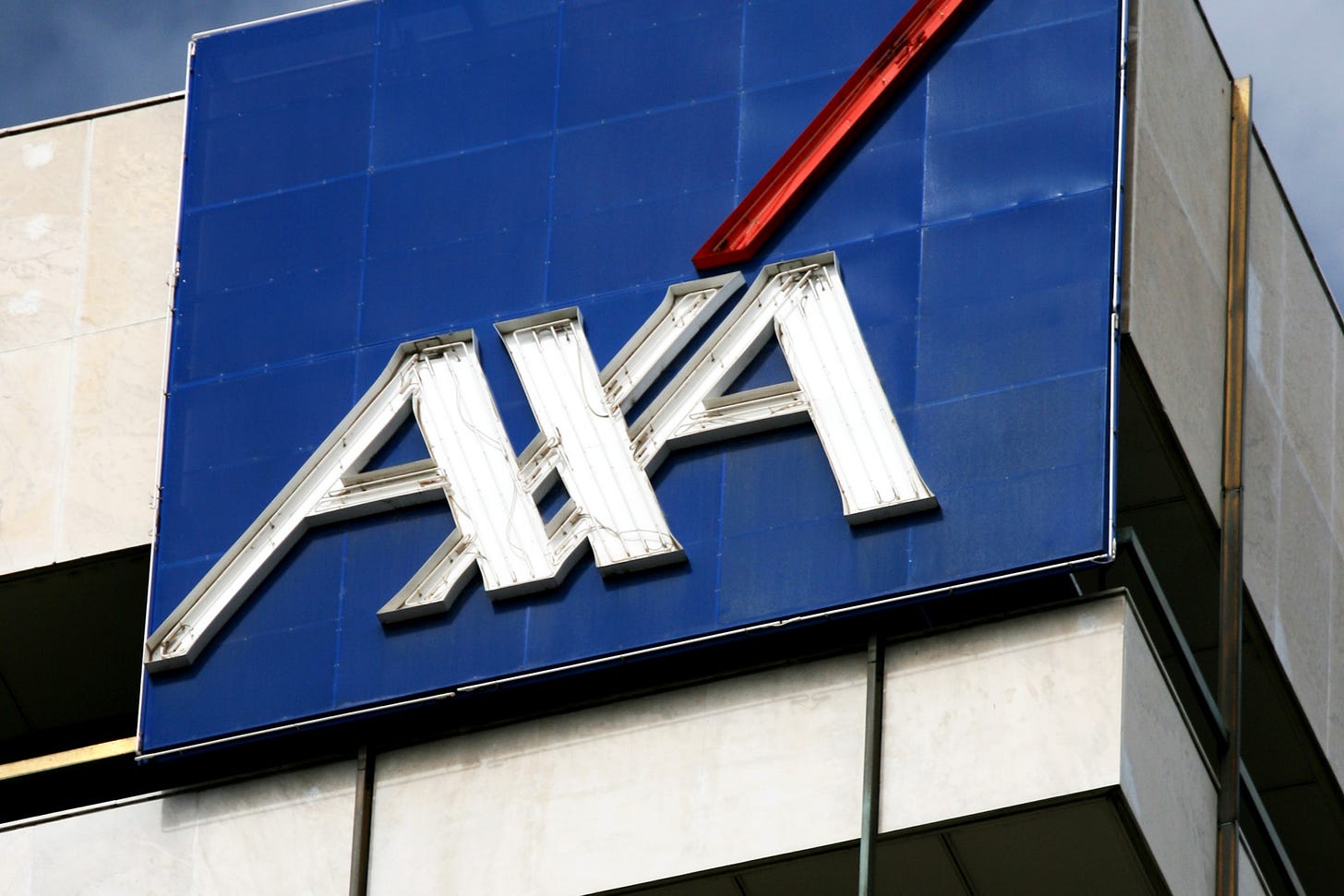Freshly exposed documents show the Hunting Office uses AXA to cover its court costs
But the policy is already “under pressure”
AXA is allegedly covering the costs of hunts that end up in court for illegal hunting. But the Hunting Office knows that the company’s support is tenuous, and the public is already putting pressure on the relationship.
Under pressure
Publishing a Hunting Office document containing details on insurance for legal fees, Hunting Leaks revealed that multinational corporation AXA currently underwrite the hunting community’s insurance scheme. The document, which Hunting Leaks published on 2nd April 2021 and is dated for the 2019/20 hunting season, stated that AXA has backed the scheme since the 2014/15 season. However, during this first season, £2667,887 of claims were made against a £183,815 premium. This put the policy “under pressure”.
Nonetheless, the document said AXA continued underwriting the Hunting Office’s insurance. While the policy covers employment issues and public order offences that reach court, a second document published by Hunting Leaks on 6th April showed that it’s primarily for Hunting Act offences. July 2020 minutes for the Association of Masters of Harriers and Beagles (AMHB) said that Newcastle and District Beagles joint-master Rupert Gibson asked:
whether legal fees insurance was necessary. [Hunting Office director] Alice Bowden replied that it was important to fight hunting act cases and that this was the primary role of the insurance. [AMHB director] Richard Tyacke added that it meant all preliminary interviews were covered and that legal support at this stage prevented a lot of cases going further.
The 6th April document also suggested that AXA’s underwriting is on shaky ground. The AMHB minutes stated that Bowden believes the Hunting Office is “at risk of losing the insurance and that we only had it thanks to a hunting man in the industry”. As Hunting Leaks suggested, this man is likely Derwent Hunt master Sean McClarron of McClarrons insurance broker. The Hunting Office document on legal fees stated that AXA’s insurance was brokered through McClarrons.
‘Illegal activity would invalidate any claim’
The Citro contacted AXA for comment on the documents and a spokesperson said:
While AXA is committed to a confidential relationship with all our customers, we are also mindful of any concerns that are raised to us. We would only support businesses and individuals who operate within the law and, on all of our insurance policies, illegal activity in any walk of life would invalidate any claim.
On 5th April, the AXA Insurance Twitter account responded to user @Jon_Tout saying it would “look into the points raised” and that it only supports “businesses and individuals who operate within the law”:

Meanwhile, Twitter user @valeyammha evoked a response on 5th April from insurance company Swiftcover, which is owned by AXA. Swiftcover provided a reply nearly identical to that of AXA’s, saying it would “look into the points raised” and that it only supports “businesses and individuals who operate within the law”:

History repeating
In 2007, the League Against Cruel Sports carried out a similar exposé. The anti-bloodsport charity uncovered HSBC as underwriting insurance for the Master of Foxhounds Association (MFHA). A Times article from July 2007 said that the League’s then-chairman John Cooper would write to the bank’s chief executive “to query the arrangement”. It also quoted the MFHA’s then-director Alastair Jackson, who said:
Hunts can get legal fees insurance from any number of firms. It's a perfectly normal sort of insurance.
An Insurance Age article in September 2007 said the bank “hit back” at the League’s claims.
The Citro contacted the League and HSBC to find out more but hadn’t received any further details at the time of publishing.
A news piece in Countryside Alliance magazine showed HSBC still offered insurance to the shooting industry in 2017.
The weakest link
AXA is no stranger to harmful industries. Campaigning website SumOfUs has highlighted the corporation’s investment in the Israeli state’s occupation of Palestine. AXA is also one of the nuclear weapons trade’s largest investors, according to Ethical Consumer.
Previously, Stop Huntingdon Animal Cruelty (SHAC) targeted AXA for many years because of the insurance company’s funding of animal testing facility Huntingdon Life Sciences. The insurance company eventually dropped the facility in 2007 following overwhelming pressure by the SHAC campaign. And as this article is published, sab groups have started announcing street demos outside AXA offices.
Compared to Israeli occupation and nuclear arms, the hunting industry may seem like an insignificant and negligible risk for AXA. But that may also work against the Hunting Office. Bowden suggested the relationship between her organisation and AXA is built primarily on a single connection: that of Sean McClarron. And as SHAC showed, fragile links are big targets for activists with determination.
Want to support The Citro? Click here to contribute.
Headline image via Shiny Things/Flickr




